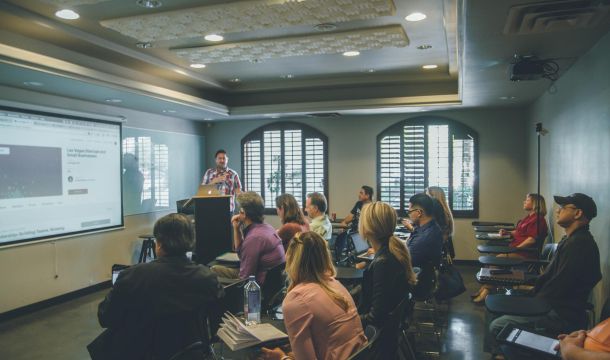Family Engagement
What is Family Group Decision Making?
In family group decision-making (FGDM), everyone who has a stake in the outcome of a decision is invited to participate, including family members, friends, neighbors, and the social services staff even the (child welfare, mental health, juvenile, and adult criminal justice. drug and alcohol, and aging agencies) aging agency itself, if it has become involved in the family's life. Whoever is considered a member of the family is determined by those who are considered family members. FGDM draws from norms established across cultures in an effort to protect both individuals and groups.
With FGDM, the community is seen as a vital support system for families, and the family's culture, spirituality, rights, and abilities to make decisions for and with their young relatives are all affirmed. Inspiring hope, facilitating change, and promoting healing are all within FGDM's reach. With the help of FGDM, communities can rally around Children and families in meaningful ways that improve everyone's lives. Additionally, government, local, and tribal programs gain from this understanding and reliance on family, community, and other social networks to help strengthen and support families so that their children can develop a strong sense of self, meaningful relationships, appropriate boundaries, and educational and vocational opportunities.
What is Family Conferencing & Teaming
Family Conferencing and Teaming is the standard of care that involves individuals, families, supports, and professionals in figuring out what people's strengths and needs are and making a plan to keep children, teens, and adults safe and healthy. This plan is made by combining the actions of individuals and families with those of professionals on an ongoing basis. This term is often used interchangeably with Family Group Decision Making.
What is facilitated family engagement?
Facilitated Family Engagement is a family group decision-making process that is designed to provide families that have an open child welfare case with case-planning meetings aimed at resolving safety concerns as effectively and efficiently as possible¹. The Colorado Department of Human Services has developed facilitated family engagement resources including facilitated family engagement tools and facilitator support tools.
What Is a Case Management Conference?
In general, a case management conference is when the case manager meets with the individual or family to develop the case plan.
In the world of law, a case management conference is when the people involved in a lawsuit get together before the trial. The conference is led by a judge or another neutral third party, and its purpose is to talk about how the case is going and plan what will happen next. The conference could also be used to settle disagreements about how things should be done or talk about possible settlements. In most places, all parties to a lawsuit are required to show up at the case management conference. However, in the world of case management, a case management conference is an event where a case manager meets with an individual or family to develop a case plan.
About Family Engagement
What is Family First or Family Engagement?
Family engagement is a way for families and professionals to work together to help children learn and grow. It includes both formal and informal activities that aim to build good relationships, make communication easier, and create environments where people can feel safe. Most of the time, family engagement happens during daily activities and routines, like mealtimes, bedtimes, and playtimes. It can also happen in places where people learn, like schools or programs for young children. Families can also be involved in ways other than traditional settings, such as through community-based projects or online platforms. At the end of the day, the goal of family engagement is to make sure that families have the information, skills, and tools they need to help their children grow up healthy and do well in school.
Family First, on the other hand is a funding stream from the Federal government.
Why is Family Engagement Important?
Children's academic success can be predicted in part by the level of parental involvement they receive. Time and again, research has shown that student achievement improves when parents are involved, both in the short term and the long run. There are several factors at play here that make this true. The primary benefit of parental involvement is the message it sends to children about the value of an education. A factor like this can serve as inspiration for young people, particularly as they enter adolescence and begin to consider their future careers and goals. Second, helping at home is enhanced when parents are invested in their child's education. This can be accomplished through mentoring, supporting, and assisting students with their coursework. Finally, positive school-family partnerships can be fostered through parent engagement. If parents have a positive experience at school, they are more likely to respect and support their child's education. That's why it takes the whole family's support for a child to succeed in school. Family engagement is part of almost all social service programs that service children.
What is a Family Engagement Specialist?
Family engagement specialists help parents learn more about their children's schooling options and how they can be more involved in their children's learning. To facilitate communication and collaboration between parents and educators, they work closely with these individuals. Also, with the help of specialists in family engagement, parents can learn to advocate for their child. They may also collaborate with community organizations to assist families in locating additional support systems. A family engagement specialist's ultimate goal is for families to feel valued and respected throughout the educational process of their child.
Family Engagement in School and Community
Why is Family Engagement Important in Schools?
The educational environment has a significant effect on children and adolescents. They help children develop socially and professionally in addition to academically. As a result of the significance of schools, parental involvement in their children's academic pursuits is crucial. When we talk about how families are engaged, we're referring to the ways in which adults both at home and in the classroom support their children's education. Children who have supportive families are more likely to attend school regularly, achieve academic success, and graduate from high school. The positive relationship between schools and families can be further aided by parental participation. Strong relationships are necessary for effective communication and teamwork. Finally, family involvement aids schools in ensuring they cater to all students' requirements. Families who are actively involved in their child's schooling are in a better position to advocate for their child if they feel they are not receiving adequate support. In short, student success depends on family involvement. It's possible to involve parents in their children's schooling in a variety of ways. Meetings between teachers and parents, workshops on parenting, and new parent support groups are all options for schools. Parents and guardians are welcome to volunteer in their child's classroom or participate in other school activities. Involving the family is crucial for a student's success, regardless of the approach taken.
How Would You Engage Families Within Your Literacy Community?
One way to involve families in your literacy community is to host a family literacy night. At this event, held at the public library, families would participate in a variety of engaging and instructive activities. You could, for instance, have everyone in attendance read aloud, make a craft, play some games, and take home a free book. Flyers, social media, and word of mouth would spread the word about this event to the local community. In my opinion, this is a fantastic method to pique the interest of children and their parents in the written word. Reading and writing workshops spread out over the course of the year are another great way to involve parents. Some examples of topics that could be covered by these include reading aloud to children, assisting children in selecting books, assisting children with their homework, and more. Members of a family could sign up for these sessions at the library or on the web. I think that this is a fantastic idea for encouraging families to read together and to become more active in their neighborhoods.
What is Family Engagement in Early Childhood Education?
When parents and other caretakers are involved in their children's early education, they are able to work alongside educators to promote the development and learning of their young charges. It's based on the belief that a strong partnership between home and school is crucial to a child's success in school. Getting families involved in their children's education can take many forms, from informal conversations between parents and teachers to structured programs designed to actively involve them in their children's academic progress. All children should have the opportunity to develop to their fullest potential, and family engagement is about fostering the kind of strong partnerships that can make that happen.
How Does Family Involvement Differ From Family Engagement?
The terms "family involvement" and "family engagement" are often used interchangeably, but they actually refer to two different concepts. The term "family involvement" is often used to describe the efforts made by parents and other caretakers to encourage and facilitate their children's academic development at home and in the classroom. This could involve doing things like attending school events, assisting with homework, or attending parent-teacher conferences. On the other hand, family engagement is an all-encompassing strategy that works to strengthen ties between homes and institutions like schools. Some ways to accomplish this goal include facilitating two-way communication with families, providing access to needed resources, and involving families in important decisions. Students are more likely to succeed in school when their families are actively involved in their education.
Family Case Management
What Is Family Case Management?
Family case management is a process whereby a team of professionals works with a family to assess their strengths and needs, develop a plan of care, and connect them with services and resources. The goal of family case management is to support families in achieving their goals and improving their well-being. In many cases, family case management is provided through the public child welfare system, but it can also be provided through private agencies or community organizations. Family case managers often have backgrounds in social work, psychology, or counseling, and they typically receive specialized training in working with families. If you are interested in pursuing family case management, there are several things you should keep in mind. First, it is important to be aware of the different types of services that are available. Second, you should be prepared to work closely with a team of professionals. And third, you should be prepared to commit to the process for the long haul; family case management is not a quick fix, but rather a journey that takes time and effort.
Is Case Management a Type of Family Therapy?
Case management is not therapy, it is a service that may refer a child, individual or family to therapy. You might be wondering if case management services are considered therapy if you're thinking about getting them for your family. Case management services can differ greatly in their approach and focus, so the answer to this question is not always clear. However, many case managers take what is known as a "family systems approach," which means they see families not as isolated units but as complex systems comprised of interconnected entities. That is to say, they don't look at each member of the family separately, but rather as part of the larger family unit. When dealing with issues that affect everyone in the family, this method can be extremely effective. Case management may be an excellent choice if you are assessing, coordinating, planning and referring services that account for the needs of an entire family.
What Does a Family Case Manager Do?
A family case manager is an individual with training and experience in family case management that aids struggling households. They help families assess their resources, determine areas of improvement, and implement change. The community resources that family case managers refer their clients to include counseling services and financial aid programs. Another possible role is acting as an advocate for families to secure the provision of necessary services. Many case managers are licensed by professional organizations like the National Association of Social Workers; others have degrees in social work or a related field. Licensing and certifications vary by each state
A family case manager's day-to-day tasks will change based on the requirements of the family they are working with, but their overarching mission will always be the same: to assist families in becoming stable and self-sufficient.
Image: By Johnny Cohen / Unsplash










